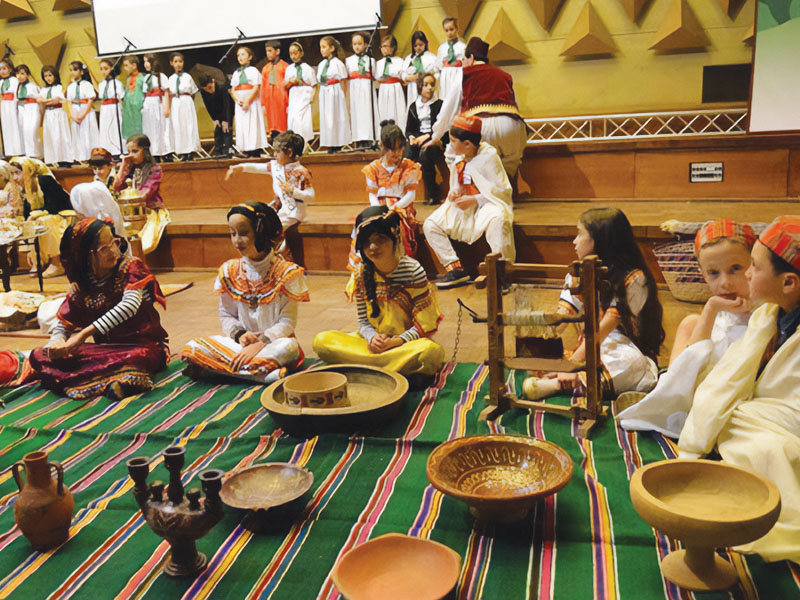Celebrations, Events and Festivities in Algerian Culture: Social Functions and Ceremonial Dimensions
Issue 54

Mutrif Umar bin Muammar Boukhadra
Eids and festive occasions are considered social practices and religious rituals through which the community preserves its folklore and cultural heritage. They have symbolic connotations and social functions. These occasions include celebrations, entertainment and joy, which help people forget their worries and sorrows and which play a vital role in strengthening family communication and social solidarity in a way that increases community cohesion and enhances relationships among the members of a society.
Occasions and festive events are held on specific dates each year. Arab and Islamic societies may be among the richest societies in terms of Eids and events, and Algerian society is no exception. Like the other Arab and Islamic countries, Algeria has religious occasions, family celebrations and social and national occasions.
These occasions and celebrations include formal and folk traditions and some consider them a space relieve people’s worries and sorrows, if only temporarily. The rituals practiced at these events have religious, social and spiritual aspects, so they have become important pillars of cultural life that help to strengthen compassion and promote social interaction. They increase the community’s cohesion by strengthening its structure and enhancing social relationships among its members.
Some may ask: What is the relationship between occasions, celebrations and seasons? What are the different types of occasions and celebrations? What are their symbolic connotations, social functions and ceremonial manifestations?
The ceremonial rituals are examples of many aspects of social behaviour that preserve the traditional structure of social life among different classes. These rituals are intertwined with the sacred and the legendary and with cultural heritage and the religious dimension, and this means the customs and traditions are very diverse.
This diversity has been transmitted through the generations despite the economic and social changes that society is experiencing as a result of the requirements of our age. The speed of these economic and social changes has led to the emergence of new patterns of social behaviour and customs and traditions associated with traditional celebrations.
Celebrations do not always reflect a people's earliest customs and traditions because society, in an effort to renew itself and maintain its structure, has created new customs and traditions in the midst of rapid widespread changes at a time when the importance of former behavioural patterns has diminished and traditions no longer serve the same functions.
Ceremonial rituals that have social significance and religious, cultural and ceremonial dimensions help to strengthen family belonging, social solidarity and the individual’s personality, and they enhance social identity.







































































